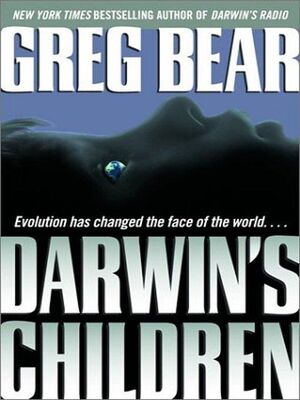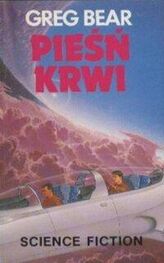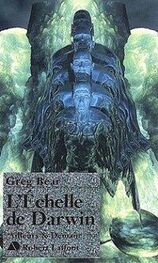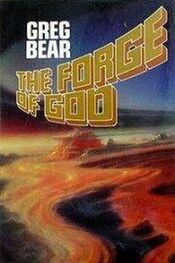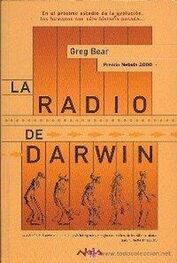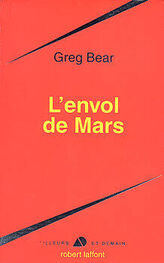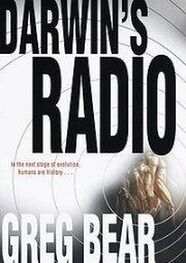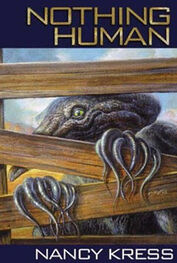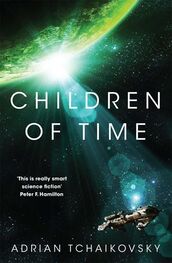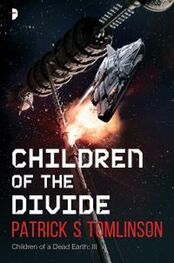I also make a distinction between self-aware personality and mind. Human self-awareness is a psycho-social phenomenon resulting from feedback in modeling the behavior of one’s neighbors, and, almost coincidentally, modeling one’s own behavior to make sure we’ll fit into social activities. One offshoot of this ability is the writing of novels.
Self is not an illusion; it’s real. But it’s not unitary, it’s not primary, and it’s not always in charge.
It seems apparent that God does not micromanage either human history or nature. Evolutionary freedom is just as important as individual human freedom. Does God interfere at all? Other than my affirming, along with many others, that the presence of something we could call God is made known—a kind of interference, undoubtedly—I do not know.
As Kaye experiences her epiphany, she is made aware that her “caller” is not talking just to her, but to other minds within and around her. Epiphany is not limited to our conscious selves, or even to human beings.
Imagine epiphany that touches our subconscious, our other internal minds—the immune system—or that reaches beyond us to touch a forest, or an ocean… or the vast and distributed “minds” of any ecological system.
If the only honest approach to understanding both nature and God is humility, then surely this should help by making us feel humble.
A SHORT BIOLOGICAL PRIMER
Humans are metazoans, that is, we are made up of many cells. In most of our cells there is a nucleus that contains the “blueprint” for the entire individual. This blueprint is stored in DNA, deoxyribonucleic acid; DNA and its complement of helper proteins and organelles make up the molecular computer that contains the instructions necessary to construct an individual organism.
Proteins are molecular machines that can perform incredibly complicated functions. They are the engines of life; DNA is the template that guides the manufacture of those engines.
DNA in eukaryotic cells is arranged in two interwoven strands—the “double helix”—and packed tightly into a complex structure called chromatin, which is arranged into chromosomes in each cell nucleus. With a few exceptions, such as red blood cells and specialized immune cells, the DNA in each cell of the human body is complete and identical. Researchers currently estimate that the human genome —the complete collection of genetic instructions—consists of approximately thirty thousand genes . Genes are heritable traits; a gene has often been defined as a segment of DNA that contains the code for a protein or proteins. This code can be transcribed to make a strand of RNA, ribonucleic acid; ribosomes then use the RNA to translate the original DNA instructions and synthesize proteins. Some genes perform other functions, such as making the RNA constituents of ribosomes.
Many scientists believe that RNA was the original coding molecule of life, and that DNA is a later elaboration.
While most cells in the body of an individual carry identical DNA, as the person grows and develops, that DNA is expressed in different ways within each cell. This is how identical embryonic cells become different tissues.
When DNA is transcribed to RNA, many lengths of nucleotides that do not code for proteins, called introns, are snipped out of the RNA segments. The segments that remain are spliced together; they code for proteins and are called exons. On a length of freshly transcribed RNA, these exons can be spliced together in different ways to make different proteins. Thus, a single gene can produce a number of products at different times.
Bacteria are tiny single-celled organisms. Their DNA is not stored in a nucleus but is spread around within the cell. Their genome contains no introns, only exons, making them very sleek and compact little critters. Bacteria can behave like social organisms; different varieties both cooperate and compete with each other to find and use resources in their environment. In the wild, bacteria frequently come together to create biofilms; you may be familiar with these bacterial “cities” from the slime on spoiled vegetables in your refrigerator. Biofilms can also exist in your intestines, your urinary tract, and on your teeth, where they sometimes cause problems, and specialized ecologies of bacteria protect your skin, your mouth, and other areas of your body. Bacteria are extremely important and though some cause disease, many others are necessary to our existence. Some biologists believe that bacteria lie at the root of all life forms, and that eukaryotic cells—our own cells, for example—derive from ancient colonies of bacteria. In this sense, we may simply be spaceships for bacteria.
Bacteria swap small circular loops of DNA called plasmids. Plasmids supplement the bacterial genome and allow them to respond quickly to threats such as antibiotics. Plasmids make up a universal library that bacteria of many different types can use to live more efficiently.
Bacteria and nearly all other organisms can be attacked by viruses . Viruses are very small, generally encapsulated bits of DNA or RNA that cannot reproduce by themselves, Instead, they hijack a cell’s reproductive machinery to make new viruses. In bacteria, the viruses are called bacteriophages, (“eaters of bacteria”) or just phages . Many phages carry genetic material between bacterial hosts, as do some viruses in animals and plants.
It is possible that viruses originally came from segments of DNA within cells that can move around, both inside and between chromosomes. Viruses are essentially roving segments of genetic material that have learned how to “put on space suits” and leave the cell.
SHORT GLOSSARY OF SCIENTIFIC TERMS
Antibody:molecule that attaches to an antigen, inactivates it, and attracts other defenses to the intruder.
Antibiotics:a large class of substances manufactured by many different kinds of organisms that can kill bacteria. Antibiotics have no effect on viruses.
Antigen:intruding substance or part of an organism that provokes the creation of antibodies as part of an immune response.
Bacteria:prokaryotes, tiny living cells whose genetic material is not enclosed in a nucleus. Bacteria perform important work in nature and are the base of all food chains.
Bacteriophage:see phage .
Chromosome:arrangement of tightly packed and coiled DNA. Diploid cells such as body cells in humans have two sets of twenty-two autosomes as well as two sex chromosomes ; haploid cells such as gametes—sperm or ova—have only a single set of chromosomes. The total number of chromosomes varies between apes and humans. Chromosome numbers for so-called ancestral species such as Homo sapiens neandertalensis and Homo erectus are not known; any DNA extracted from even relatively recent (~20,000 years) fossil specimens is generally limited to mitochondrial DNA. Polyploidy—having extra sets of chromosomes—results in infertile offspring or totally precludes reproduction between organisms and can often define a barrier between species. This should prevent successful mating between SHEVA individuals and older variety humans. Apparently, it does not. This puzzles scientists, and further research is in order.
Cro-Magnon:early variety of modern human, Homo sapiens sapiens, from Cro-Magnon in France. Homo is the genus, sapiens the species, sapiens the subspecies.
DNA:Deoxyribonucleic acid, the famous double-helix molecule that codes for the proteins and other elements that help construct the phenotype or body structure of an organism.
Читать дальше